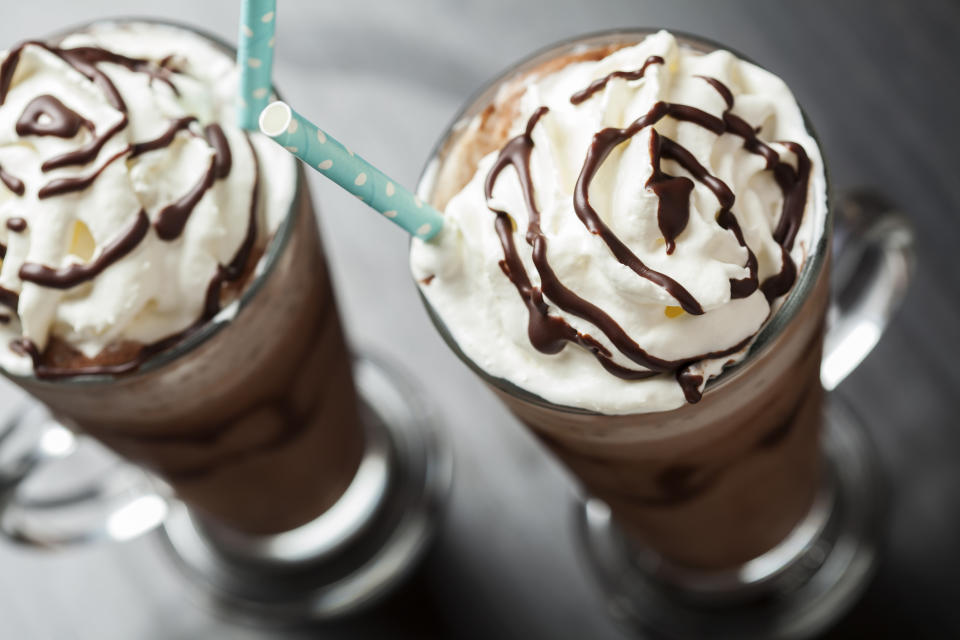New study finds just one milkshake is enough to kick-start heart disease
You may want to think twice before you cheat or treat. Having just one high-fat milkshake can “set the stage” for heart disease, according to a new study published in the journal Laboratory Investigation.
For the study, researchers from the University of Augusta’s Medical College of Georgia recruited 10 apparently healthy, physically active male participants with no past medical history and on no medications. They took blood samples before serving them a milkshake made with whole milk, heavy whipping cream, and ice cream. It had 80 grams of fat and 1,000 calories. Sounds delicious.
Four hours later, when the researchers once again took blood tests and other vitals, they found that consuming the milkshake had transformed the men’s healthy red blood cells into small, spiky cells that “wreak havoc inside our blood vessels and help set the perfect stage for cardiovascular disease.”
“Your red blood cells are normally nice and smooth and beautiful and the cells, after consumption of a high-fat meal, get these spikes on them,” writes Julia E. Brittain, PhD, vascular biologist at the MCG Vascular Biology Center and co-author of the study.

From high school biology, you probably remember red blood cells as the ones that carry oxygen. They are usually very flexible, so they flow through blood vessels smoothly. “But with a single high-fat meal, they essentially grow spikes and spew poison,” according to the study.
According to Brittain, post-milkshake red blood cells do to blood what huge ice chunks do to rivers; “these physical changes affect how blood flows.”
The high fat dish creates an environment that resembled the beginnings of cardiovascular disease — blood vessels are less able to relax and the immune response is similar to one provoked by an infection, the researchers found.
In both the cells and blood, there was evidence of myeloperoxidase, or MPO, which is not good. “Myeloperoxidase levels in the blood are directly implicated in heart attack,” writes study co-author Neal L. Weintraub, MD, a cardiologist, a Georgia Research Alliance Herbert S. Kupperman Eminent Scholar in Cardiovascular Medicine, and the associate director of MCG’s Vascular Biology Center. “This is a really powerful finding.”
It should be noted that the system change brought on by the milkshake was likely temporary in these healthy individuals, according to the researchers. At least in mice studies and in some of Brittain’s other human studies, the unhealthy changes resolve quickly, after about eight hours, unless the high-fat feasts continue. “The take-home message is that your body can usually handle this if you don’t do it again at the next meal and the next and the next,” said Brittain. This is why doctors constantly urge overweight individuals to cut out high-fat foods like fries and, well, milkshakes.
The article also pointed out that a previous study conducted by one of these authors, Ryan A. Harris, PhD, found that a single aerobic exercise session by young healthy individuals can counteract the effects of the unhealthy milkshake.
However, if you can find the strength to avoid the milkshake, you’re better off. The researchers concluded that there is a “definite cumulative toll” from this type of eating, and that their study could help explain “isolated reports of death and/or heart attack right after eating a super-high fat meal.”
Read more from Yahoo Lifestyle:
Locker room photo of hockey player breastfeeding her daughter is going viral
Florida woman thought her 37-week pregnancy was bad Chinese food: ‘I was in shock’
Mom who was shamed for posing in sexy photo shoot has epic clap back
Follow us on Instagram, Facebook, and Twitter for nonstop inspiration delivered fresh to your feed, every day.
